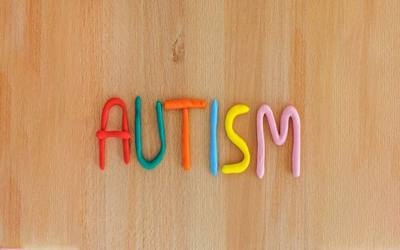Autism is a disorder affecting a child’s development in 3 main areas:
- Speech and non-verbal communication
- Social interaction
- Behavior
[the_ad id=”6084″]
Autism is a spectrum and children may be affected with mild to severe autism. Conditions like Asperger’s syndrome, Pervasive Developmental Disorder are now included under the umbrella term of Autism Spectrum Disorder (ASD). Some children are more affected than others. Each child is different!
What causes Autism?
- At present, there is no known cause for autism
- Experts believe that a combination of genetic and environmental factors may be linked with autism
- Families with a history of autism do have a slightly higher risk of having a child with autism
- There are several genetic factors that have been identified in children with Autism. A lot of research is being carried out to understand their role in autism
- Brain malformations and genetic syndromes like Fragile X are associated with autism.
Autism is NOT caused by:
- Vaccines
- Unhappy parent–child relationship
- Mothers working in jobs outside the home
- Children watching excessive TV
- Mental stress during pregnancy
- You have NOT “made” your child Autistic!
What are the signs of Autism?
Many children with autism seem to be in a world of their own. However, every child with autism is different and may have different symptoms. Your doctor will look for the signs below and make a diagnosis. A single sign alone is not enough to make the diagnosis of autism.
Some children with autism may have:
- Epilepsy
- Gastrointestinal problems – constipation, chronic diarrhea, reflux, feeding difficulties
- Sleep problems
- Other psychological conditions – anxiety, depression, obsessive-compulsive disorder
How is autism diagnosed?
Autism is a clinical diagnosis. The diagnosis can be made by a pediatric neurologist, neuro-developmental pediatrician, or child psychiatrist. The evaluation includes:
- a detailed developmental history
- informal observation of the child during interaction and play
- performance of the child on structured assessment tasks
- There is no specific blood or imaging test
- Certain genetic disorders/metabolic conditions are known to be associated with autism.
Your child’s doctor can tell you whether your child would benefit from testing.
Autism can be reliably diagnosed by 2- 3 years of age, often even as early as 18 months.
What can I do for my child?
If you suspect your child may have features of autism – do get an evaluation at the earliest.
There is no known cure for autism. However, medication, therapy and rehabilitation can significantly improve your child’s development.
A child’s brain is rapidly growing and changing in the first few years of life and early intervention can improve outcomes. The rate and degree at which different children acquire skills vary.
Children with autism, like all other children, have the potential to learn. They too have their unique strengths. Parent’s job as caregivers is to understand their child’s strengths and to help them learn according to their own learning style. Parents can learn how to use play and activities during the day to build their child’s communication and social skills.
Most children with Autism have difficulties with expressive and receptive language, attention and social skills. Some children with Autism may have sensory difficulties that make it hard for them to sit in one place and focus or make them sensitive to certain sounds, lights and textures. They may also have motor difficulties or severe behavioral problems. Such children would benefit from working with a therapist who is trained in Autism intervention.
Therapy includes:
- Behavioral modification
- Speech therapy
- Occupational therapy + Sensory integration (SI)
- Oromotor therapy
Medication:
Some children may require medications for severe behavioral issues, self-injurious behavior, physical aggression, hyperactivity, ADHD, seizures and sleep problems.
At present, there is NO EVIDENCE to support these therapies:
- Gluten-free/Casein-free diet, Ketogenic or other special diets (behavioural improvements have been noted in some cases, but do not start these diets without consulting your child’s doctor first)
- Chelation therapy
- Hyperbaric O2 therapy
- Stem cell transfusion
A Developmental Pediatrician can make the diagnosis and then monitor progress and suggest way forward. A Pediatric Neurologist can also diagnose Autism as well as address other neurological issues along with Autism, if any, like Epilepsy, neurological syndromes, etc. Therapists at the rehabilitation center can provide therapy to help the child acquire new skills and progress.
Source:

